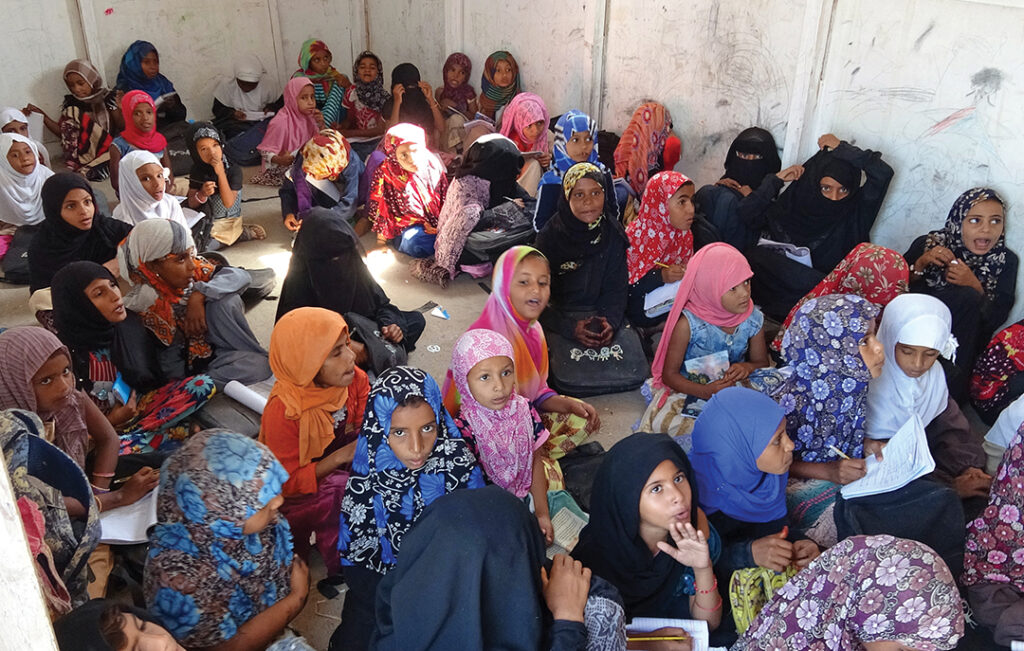UNIPATH STAFF
Six years of ongoing conflict between the legitimate Yemeni government and the Houthi militia have, among other things, deprived more than 2 million children of education, according to a UNICEF report.
In 2015, about 890,000 children were out of school, less than half the current amount. The significant increase reflects the accelerating deterioration of the situation in Yemen, pressing the international community to find a solution to end one of the world’s worst humanitarian crises.
Many fear those children will never return to school, hampering Yemen’s development and prospects for recovery. Even those remaining in school did not always receive a quality education because of school and teacher shortages. Many school buildings have suffered from the civil war — being damaged, converted into shelters or occupied by the Houthi militia.
The world has watched in horror as the Houthis have taken advantage of uneducated children and pressed thousands into combat to alleviate troop shortages. Some of this recruitment is conducted under the guise of providing summer camps for idle children.
Between March 2015 and February 2021, more than 3,600 Yemeni children were recruited by armed groups, and earlier it was reported that 17% of Yemen’s children between the ages of
5 and 17 were exploited for their labor.
The United Nations estimates that eight of 10 Yemeni children live with families whose incomes are insufficient to meet basic life needs. An estimated 170,000 teachers have not been paid for four years. Yemeni literacy rates lag behind much of the world, especially in rural areas.
Article 54 of Yemen’s Constitution stipulates that education is a right for all citizens. Part of it reads:
“The state shall guarantee education in accordance with the law through building various schools and cultural and educational institutions. Basic education is obligatory. The state shall do its best to obliterate illiteracy and give special care to expanding technical and vocational education. The state shall give special attention to young people and protect them against wrong thinking, provide them with religious, mental, and physical education, and the appropriate environment to develop their aptitude in all fields.”
Sources: UNICEF, aljazeeara.net

